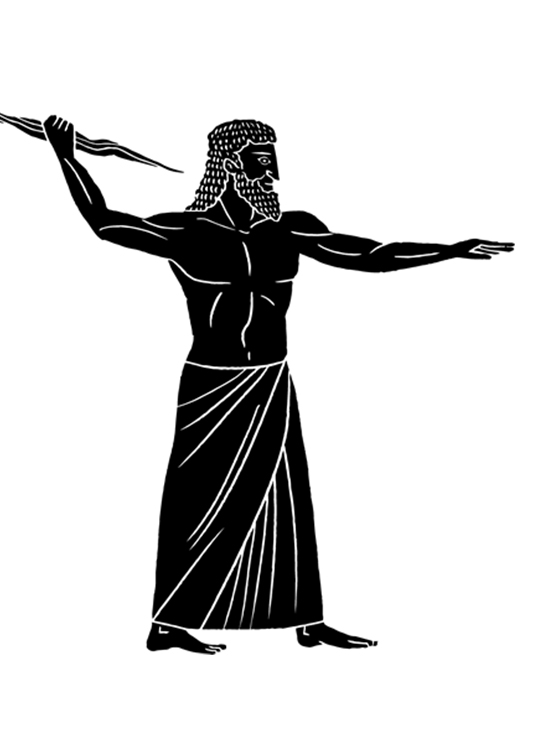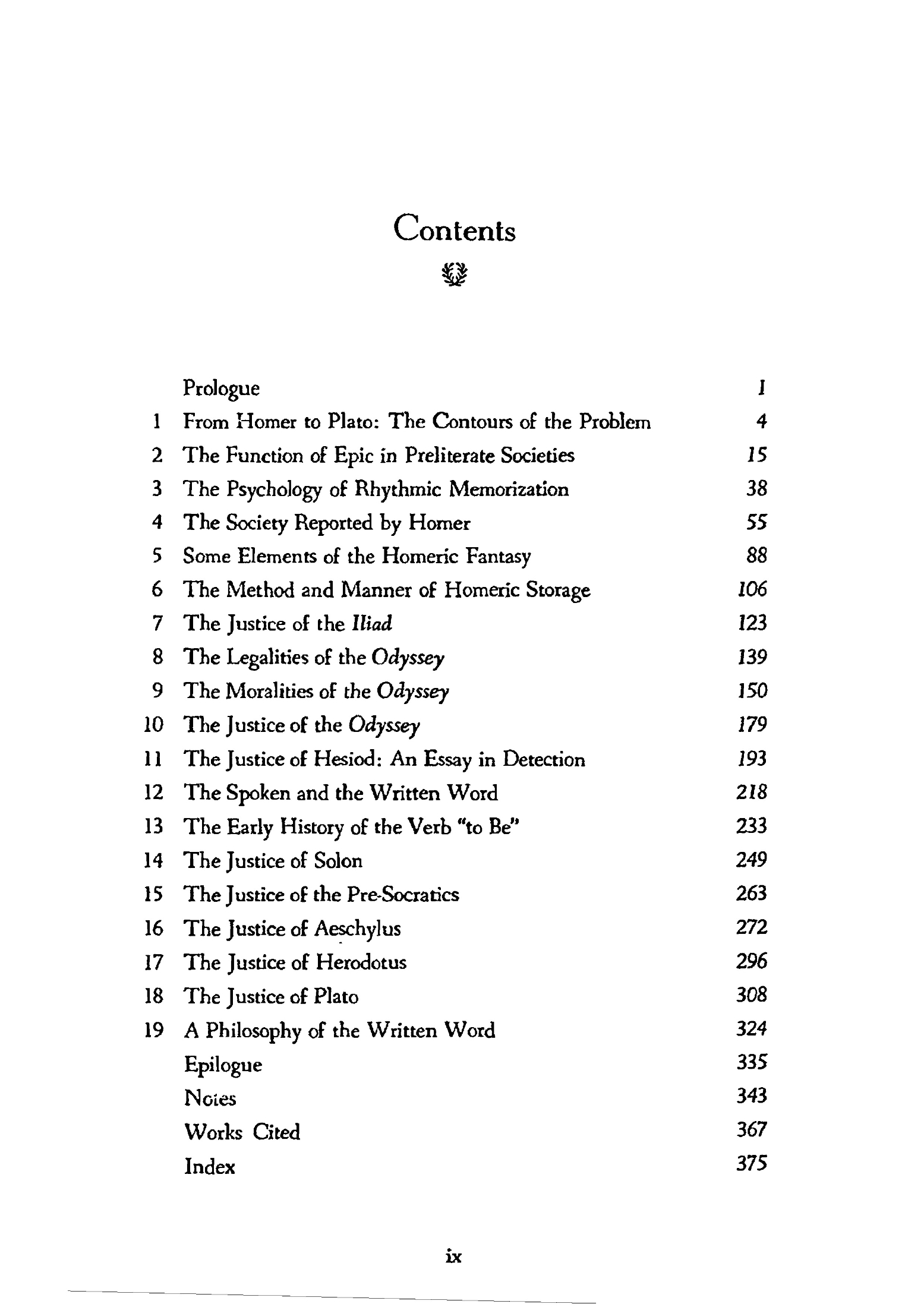About
The Greek Concept of Justice is a 1978 work by Eric Havelock that discusses the origins of justice according to Greek literature.
Source: OMNIKA
In this book, Eric Havelock presents a challenging account of the development of the idea of justice in early Greece, and particularly of the way justice changed as Greek oral tradition gradually gave way to the written word in a literate society.
He begins by examining the educational functions of poets in preliterate Greece, showing how they conserved and transmitted the traditions of society, a thesis adumbrated in his earlier book Preface to Plato. Homer, he demonstrates, has much to say about justice, but since that idea is nowhere in the epics directly stated or expressed, it must be deduced from the speech and actions of the characters. Havelock's careful reading of the Iliad and the Odyssey is original and revealing; it sheds light both on Homeric notions of justice and on the Archaic Greek society depicted in the poems.
As Havelock continues his inquiry from Hesiod to Aeschylus, his findings become more complex. The oral Greek world shades into a literate one. Words lose some kinds of meanings, gain others, and steadily become more suitedto the conceptualization that Plato strove for and achieved. This evolution of language itself, Havelock shows, was one of the principal accomplishments of the Greek world.
Lucidly written and forcefully argued, this book is a major contribution to our knowledge of ancient Greece--its politics, philosophy, and literature, from Homer to Plato.
Source: Author or Publisher
expand_more Read more Read less
Access
Read for free
External sources
Primary
Myth
After the Trojan war, Odysseus sails home with his men. During his long journey, he faces challenges such as the "cyclops," the Sirens, and other fantastical creatures. He hurries home because suitors are trying to take his wife's hand in marriage. When Odysseus gets home, he wins a challenge, reclaims his life, and kills all the suitors.
Belief system

The ancient Greek belief system represents a collection of cultural myths and stories that date back to circa 1300-1200 BCE. Its pantheon of deities were widely known and written about in Greek texts. The Romans...
Deity

Zeus (Greek: Ζεύς) was the sixth child of Kronos and Rhea, the original Titan deities in the Greek pantheon. Zeus ruled Mount Olympus and was said to control thunder.
Myths cited
Belief systems cited
It looks like only the main belief system was referenced in this work.
Contributor










Cite this work
ChicagoHavelock, Eric A. The Greek Concept of Justice: From Its Shadow in Homer to Its Substance in Plato. Cambridge, MA: Harvard University Press, 1978.






